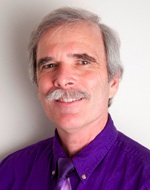
fno.org
|
|
| Vol 20|No 3|January 2011 | |
| Please feel free to e-mail this article to a friend, a principal, a parent, a colleague, a teacher librarian, a college professor, a poet, a magician, a vendor, an artist, a juggler, a student, a news reporter or to anyone else you think might enjoy it. | |
|
Dr. Jeff King is the Director of the Koehler Center for Teaching Excellence at Texas Christian University in Ft. Worth, Texas. His research and application interests have long been related to how humans learn, and in his role at TCU he helps faculty facilitate student learning. That activity requires Jeff to keep up with new learning expectations and styles that today's college students bring with them to college. Understanding the benefits and the drawbacks of what this generation brings with them as they begin transitioning into independent adults is one of the focuses of Jeff's work in his support of teaching and learning at TCU. |
|
|
|
|
Copyright Policy: Materials published in From Now On may be duplicated in hard copy format if unchanged in format and content for educational, nonprofit school district and university use only and may also be sent from person to person by e-mail. This copyright statement must be included. All other uses, transmissions and duplications are prohibited unless permission is granted expressly. Showing these pages remotely through frames is not permitted. |
|
